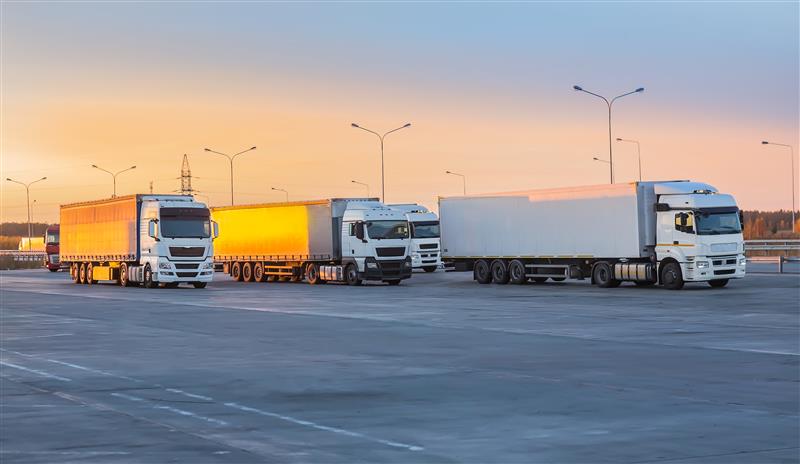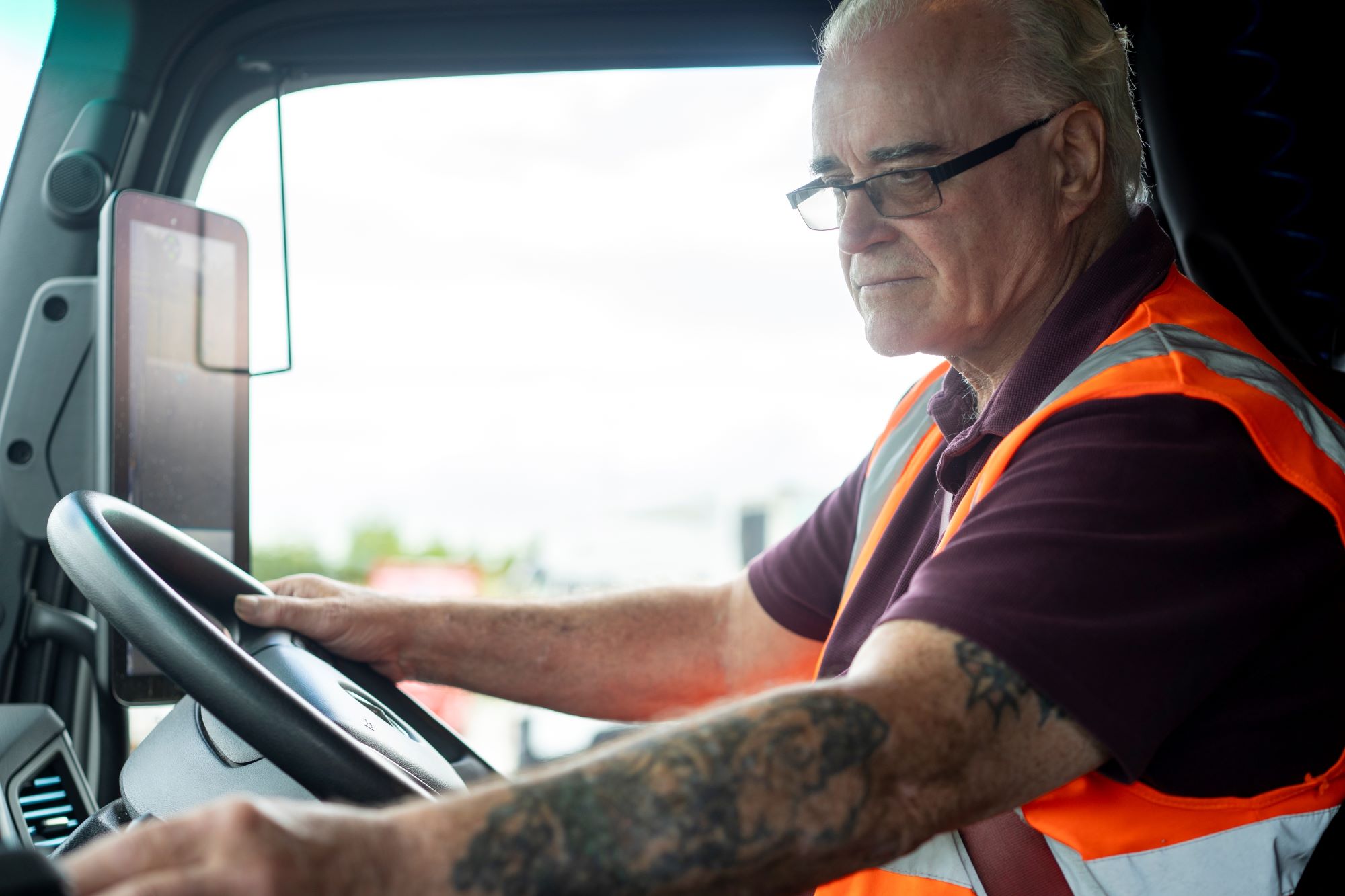
Guest
Camioanele pot circula în Europa duminica?
Creat: 23.12.2024
•
Actualizat: 23.12.2024
Gestionarea interdicțiilor de conducere a camioanelor duminica în Europa necesită o înțelegere cuprinzătoare a reglementărilor specifice fiecărei țări, a variațiilor sezoniere și a strategiilor eficiente. Investind în planificarea temeinică a rutelor, rămânând informate, optimizând operațiunile și valorificând tehnologia, companiile de flote pot atenua impactul acestor restricții.
În acest blog, explorăm diferitele reguli dintr-o varietate de țări europene și analizăm în detaliu cele mai bune modalități de adaptare la acestea.
Reglementări specifice fiecărei țări
Fiecare țară are propriile legi privind interdicția de a conduce duminica, iar acestea pot varia foarte mult.
Germania
În ultima zi a săptămânii, de la ora 12.00 până la ora 22.00, camioanele care depășesc 7,5 tone nu au voie să circule. Cu toate acestea, acest lucru nu este neapărat un factor de descurajare. Operațiunile de transport combinat pot beneficia de toleranțe speciale, transportul feroviar și rutier fiind permis pe o rază de 200 de kilometri de stațiile de încărcare sau descărcare, iar transportul portuar sau rutier fiind permis pe o rază de 150 de kilometri de porturi. De asemenea, transportul anumitor mărfuri perisabile este scutit, cum ar fi laptele proaspăt, produsele lactate, carnea, peștele, fructele și legumele.
În plus, anumite vehicule și operațiuni nu fac obiectul interdicției, cum ar fi vehiculele de urgență implicate în servicii de recuperare, remorcare sau depanare.
Franța
În acest teritoriu, restricțiile de circulație sunt similare cu cele din Germania, aplicându-se camioanelor care depășesc 7,5 tone. Aceste embargouri au loc duminica și de sărbătorile legale, între orele 12:00 și 22:00.
În plus, există restricții sâmbăta și cu o zi înainte de sărbătorile naționale, circulația fiind interzisă între orele 22.00 și 24.00. Iar în timpul verii, anumite sâmbete sunt interzise de la 7 dimineața la 7 seara.
Există scutiri pentru anumite bunuri, inclusiv produse lactate și produse din carne, precum și vehicule de urgență. Încălcarea acestor interdicții poate conduce la amenzi semnificative, cuprinse între 750 EUR și 3 750 EUR pentru persoane fizice și, respectiv, companii.
Italia
În Italia, camioanele nu au voie să circule pe șosele în zilele de duminică și de sărbători legale între orele 9:00 și 22:00. Este demn de remarcat faptul că, în lunile iunie, iulie, august și septembrie, embargoul începe mai devreme, la ora 7 AM, deși se încheie tot la ora 22 PM.
Țara impune, de asemenea, restricții suplimentare în timpul lunilor de vară. În iulie, există un embargo sâmbăta între orele 8:00 și 16:00, iar în august acesta se prelungește de la 8:00 la 22:00.
Deși acestea sunt regulile generale, este esențial să știți că pot exista variații locale sau restricții temporare pe anumite rute. La fel ca în cazul Franței și Germaniei, se pot aplica și unele excepții pentru anumite tipuri de mărfuri sau servicii de urgență.
Spania
În ceea ce privește Spania, aceasta prezintă un scenariu mult mai complex. Există o diversitate de interdicții regionale, în special în Catalonia. Restricțiile de conducere pentru camioane se pot schimba în funcție de reglementările locale, sărbătorile legale și rutele specifice. Camionagii care operează aici ar trebui să consulte ghidurile locale pentru a asigura conformitatea.
Pe lângă interdicțiile de duminică și de sărbători, există, de asemenea, limitări pentru anumite zile de sâmbătă în timpul lunilor de vară. Acestea se aplică, în general, de la 8 dimineața la 12 dimineața, în special în iulie și august, când traficul este mai intens din cauza turiștilor.
Alte țări
În ceea ce privește alte națiuni europene, există multe care aplică, de asemenea, propriile interdicții de conducere duminica. Austria, de exemplu, impune ca camioanele care cântăresc peste 7,5 tone să nu poată circula pe șosele duminica între orele 12 și 22. Elveția menține ceva similar, iar vehiculele care depășesc 3,5 tone nu pot circula pe parcursul întregii zile.

Strategii pentru companiile de flote
Pentru a naviga printre restricțiile de conducere a camioanelor de duminică, planificarea eficientă a rutelor este crucială. Prin utilizarea tehnologiei avansate și a gândirii strategice, operatorii de flote își pot optimiza procesele.
Utilizați GPS și software de planificare a rutelor
Utilizarea sistemelor GPS moderne și a [software-ului de planificare a rutelor] (https://snapacc.com/newsroom/route-optimisation-with-fleet-management-software-snap-account/) permite flotelor și șoferilor acestora să identifice cele mai eficiente călătorii, evitând în același timp zonele cu interdicții de circulație. Aceste instrumente pot furniza actualizări în timp real cu privire la condițiile de drum, asigurându-se că drumarii pot lua decizii în cunoștință de cauză pe drum.
Luați în considerare rute alternative
O altă idee este să explorați modalități diferite de a ajunge la locul în cauză. Deși poate fi tentant să urmați calea cea mai directă, rutele alternative pot economisi adesea timp și pot evita eventualele amenzi. Astfel de ocoluri pot fi puțin mai lungi, dar pot ajuta la ocolirea zonelor cu embargouri stricte, permițând operațiuni mai ușoare.
Planificați pentru întârzieri
Având în vedere posibilitatea unor contratimpuri cauzate de congestionarea traficului sau de embargouri de conducere, este, de asemenea, înțelept ca societățile de flote să prevadă timp suplimentar în programele lor. O abordare proactivă oferă oportunități mai bune pentru ca livrările să rămână la timp - chiar și în fața unor provocări neașteptate.
Rămâneți informați
Este la fel de important să rămâneți la curent cu reglementările și condițiile de trafic în timp real. De aceea, este înțelept să folosiți aplicații și site-uri web specifice - acestea oferă drumarilor actualizări în timp real cu privire la închiderea drumurilor, accidente și aglomerație, permițându-le să facă ajustări ale rutelor și să evite orice întârzieri.
Multe asociații de transport și furnizori de logistică oferă servicii de abonament pentru alerte de trafic. Prin înscrierea la aceste notificări, operatorii de flote pot primi informații cu privire la orice modificare a normelor de conducere, asigurându-se că le respectă.
Utilizarea tehnologiei
Utilizarea tehnologiei poate spori eficiența operațională și conformitatea cu [reglementările privind timpul de conducere] (https://snapacc.com/newsroom/drivers-working-time-directive-a-guide-for-truck-drivers/).
Sistemele telematice permit companiilor de flote să monitorizeze locația vehiculelor, consumul de combustibil și comportamentul șoferilor. Datele pot fi neprețuite pentru optimizarea rutelor. În plus, păstrarea jurnalelor de bord digitale simplifică păstrarea înregistrărilor și va furniza documente esențiale în cazul unui audit.
La fel de importantă este și tehnologia care simplifică plățile - și aici SNAP poate ajuta.
Înscrieți-vă la SNAP
Fie că sunteți în căutarea unei parcări sigure, a unei spălătorii pentru camioane sau a altor servicii pentru flotele dvs., soluțiile noastre fac plata acestora mult mai convenabilă. Aruncați o privire la ceea ce SNAP vă poate oferi astăzi.


